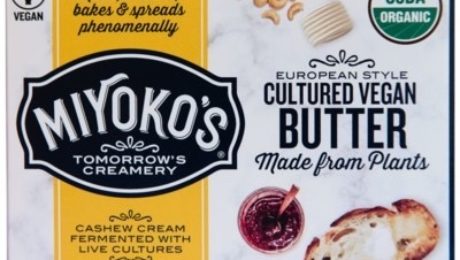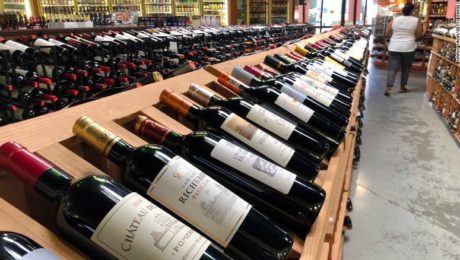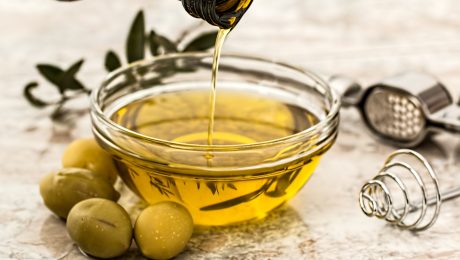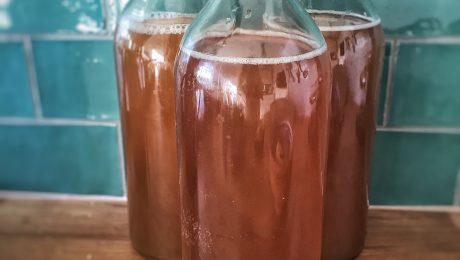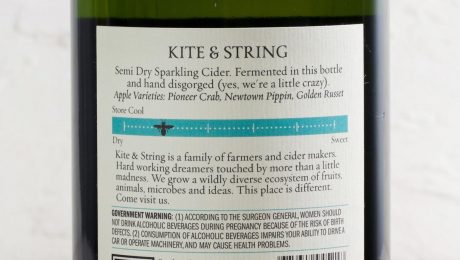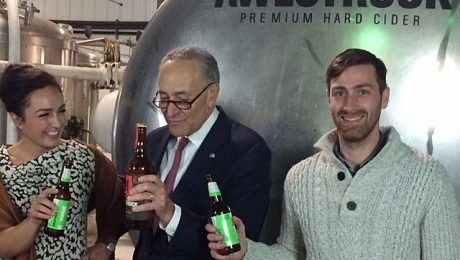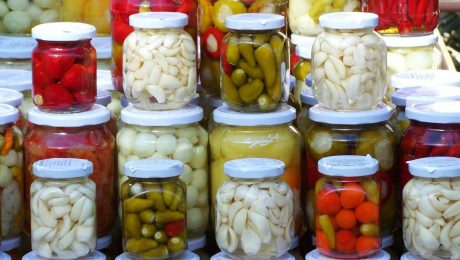Miyoko’s Sues California Ag Department Over Fermented Vegan Butter
Miyoko’s has filed a lawsuit against the California Department of Food and Agriculture, after the state agency sent a letter demanding the plant-based creamery stop using the word “butter” on the Miyoko’s butter, a cashew cream that is fermented with live cultures. The agriculture department says the term butter is restricted to products containing at least 80% milk fat. The department also told Miyoko’s to drop the terms “lactose-free,” “hormone-free” and “cruelty-free” from their packaging because “the product is not a dairy product.” In addition, the department also wants Miyoko’s to remove an image on their website of a woman hugging a cow because “dairy images or associating the product with such activities cannot be used on the advertising of products which resemble milk products.”
In response, Miyoko’s points out that the front of their butter label uses the terms “Made from plants,” “Vegan” and “Cashew Cream,” so consumers are not confused whether or not the butter is made from cow’s milk. A change would cost the company $1 million. Miyoko’s added: “The Milk and Dairy Food Safety Branch may be tasked with supporting the State’s agricultural industries, but it is prohibited by the First Amendment from taking sides in a contentious national debate on the role of plant-based foods and leveraging its power to censor one emerging industry’s speech in order to protect a more powerful and entrenched industry.”
Read more (Food Navigator)
- Published in Business, Food & Flavor
Taxes on French Wine and Cheese Tabled Until 2021
A tax on imported French wine and cheese has been delayed until 2021. U.S. President Donald Trump and French President Emmanuel Macron agreed to hold off on potential tariffs until the new year. French products — like Le Creuset Dutch ovens, Hermès handbags, Roquefort cheese and French-made wine — would have been taxed. One wine importer told the news the potential tariffs were the greatest threat to the wine industry since Prohibition. Trump threatened the taxes in retaliation for a tax imposed in France on large American tech firms, such as Facebook and Google.
Read more (Wine Spectator)
- Published in Business
U.S. Olive Growers Petition FDA to Adopt First-Ever Industry Standards
By: American Olive Oil Producers Association
The American Olive Oil Producers Association and Deoleo, the world’s largest producer of olive oil, submitted a citizen petition to the U.S. Food and Drug Administration to adopt science-based, enforceable standards for olive oil.
“Buying quality extra virgin olive oil is hard, but not because there aren’t quality products on supermarket shelves. It’s because there are just no rules to stop bad actors from misrepresenting what they’re selling,” said Adam Englehardt, Chairman of the American Olive Oil Producers Association.
“It was in this vacuum that California adopted a state-based grading and labeling standard in 2014. Family farms like mine supported those regulations because it allowed growers and producers a real opportunity to compete. A half-decade later our state is known around the world for its commitment to quality,” said Englehardt.
The new standards for olive oil, which FDA would be empowered to promulgate after a final rule pending a public comment period, would mark the first time the federal government has regulated the category. Citizen petitions for Standards Of Identity have resulted previously in the adoption of regulations for a variety of other food products.
Stakeholders involved are confident that the petition demonstrates the need to adopt the proposed science-based olive oil standards to provide honest and fair dealings in the interest of consumers while promoting a vibrant and competitive industry.
“We believe consumers have the right to know what they’re buying, but the absence of an enforceable regulatory environment makes this difficult,” said Ignacio Silva, President and CEO of Deoleo. “The petition provides an incredible opportunity to improve quality across the category and most importantly, it will restore consumer trust in olive oil. We support science-based grading standards because we’re committed to quality. It’s just that simple.”
A 2015 investigation by the National Consumers League into olive oil mislabeling found six of eleven national brands had misrepresented quality grades to consumers. A separate, four-year audit of the category between 2015 and 2019 found half of all products available to consumers today failed to meet international quality standards.
Consumers deserve to know what they are buying and should be confident that they are receiving the value and health benefits that correspond with the quality grade of olive oil they desire. The clear definition of grades set forth in the petition for extra virgin, virgin and olive oil do this and allow US consumers to choose a suitable price point to meet their preferences.
Alcohol Policy Expert: Lawmakers Must Stop Antiquated Tax Laws on Kombucha Producers
An alcohol policy expert calls for an end to antiquated alcohol excise tax laws, which are unfairly penalizing kombucha producers across the country. Though kombucha only has trace amounts of alcohol (generally below the 0.5% alcoholic beverage threshold), it is “nearly impossible for kombucha producers to control the entire supply chain,” writes Jarrett Dieterle, Director of Commercial Freedom for R Street Institute and the author of forthcoming book “Drink For Your Country.” If not properly refrigerated once it’s left the manufacturer for distribution, kombucha will continue to ferment and raise the alcohol level. Dieterle said it’s unfair to make kombucha makers pay fines of more than $10,000 when they can’t control how the drink is stored once it enters the supply chain. Protecting kombucha, he says, should be a priority for federal lawmakers.
Read more (Washington Examiner)
- Published in Business
“Best Yogurt in America” Finally Sold in California, After Being Forced Out of the State
The yogurt Los Angeles Times calls “the best yogurt in America” was forced out of California in 2011. White Moustache, which sells Greek and Persian yogurts with seasonal fruit common in Iranian cuisine added, moved to Brooklyn in 2012 after California Department of Food & Agriculture shut them down. According to California state law, making a milk-based product in a facility separate from the facility where the milk was pasteurized is illegal. Though White Moustache founder Homa Dashtaki produces her famous yogurt in New York, she now sells it in California — Manhattan’s brand of Eataly opened a Los Angeles store, and Dashtaki’s family members oversee production for the West Coast store.
Read more (The Los Angeles Times)
- Published in Business
Should a Fermented Process Get a Patent? PepsiCo Files Oat Flour and Dairy Co-Ferment Patent
Should a fermented food process need a patent? PepsiCo has filed a patent to ferment oat flour and dairy milk together. PepsiCo-owned Quaker Oats is creating a “spoonable or drinkable” clean-label product comparable to yogurt. The process involves co-fermenting a grain, dairy and a set of metabolites. This patent is unique because, while there are existing food products that combine unfermented and fermented dairy and grains, none co-ferment grain and dairy at the same time. In their application, PepsiCo notes that consumers are increasingly consuming fermented food products for health benefits.
Read more (World Intellectual Property Organization)
- Published in Science
Consumers: Let Plant-Based Foods Continue to Use Dairy Labels
Consumers are in favor of allowing plant-based food to use traditional dairy terms on their labels — but dairy farmers are strongly opposed to it. Last year, the U.S. FDA issued a public comment period to examine if plant-based foods and beverages should use the traditional dairy names: milk, cheese and yogurt. The results are out. Of those comments, 76 percent were in favor of using dairy terms on plant-based products, 13.5 percent were against and the remaining 10.5 percent were inconclusive. Of the commenters that identified themselves as dairy farmers, nearly all were opposed. Dairy farmers are concerned consumers will believe plant-based foods are nutritionally similar to cow’s milk (94 percent) and that consumers are being misled with a dairy term on a plant-based item (91 percent).
Read more (Linkage Research)
- Published in Business
Universal Dryness Scale Could “Rate” Sweet Level of Ciders
The U.S. Association of Cider Makers is creating a universal dryness scale, a number that can be put on labels to designate whether the cider is dry, semi-dry, semisweet or sweet. As ciders experience a revival in the U.S., the No. 1 issue is customers assuming all ciders are too sweet. Many feel this was the downfall of the popular Riesling wine movement of the late 2000s/early 2010s. The scale could be applied to all fermented beverages, where dryness factors could be tested in a lab.
Read more (Washington Post)
- Published in Business
New York Senator Pushes for New Regulations on Hard Ciders
A New York senator is pushing change for federal alcohol regulators to ease up on hard ciders. Cider owners cannot legally sell hard cider with an alcoholic content below 7% in cans, forcing them to use wine containers instead. This hurts most quality, fermented apple ciders, the senator argues, because they must water down their product to sell it in cans.
Read more (WXXI) Photo by CNY News
- Published in Business
How Can Restaurants Safely & Legally Put Fermented Foods on Their Menu? Advice From an Expert
A professor in Culinary Food Arts & Science shares his expertise on how restaurants can safely (and legally) put fermented foods on their menu. Because health code regulations require a time limit foods can go without refrigeration, the restriction makes it near impossible for restaurants to serve their own fermented foods. Creating a HACCP (Hazard Analysis and Critical Control Points) plan approved by the health department helps. Another option is to stop fermenting in the restaurant and instead buy high-quality fermented foods from a third-party that can be refrigerated.
Read More (Restaurant Business Online)
- Published in Business

